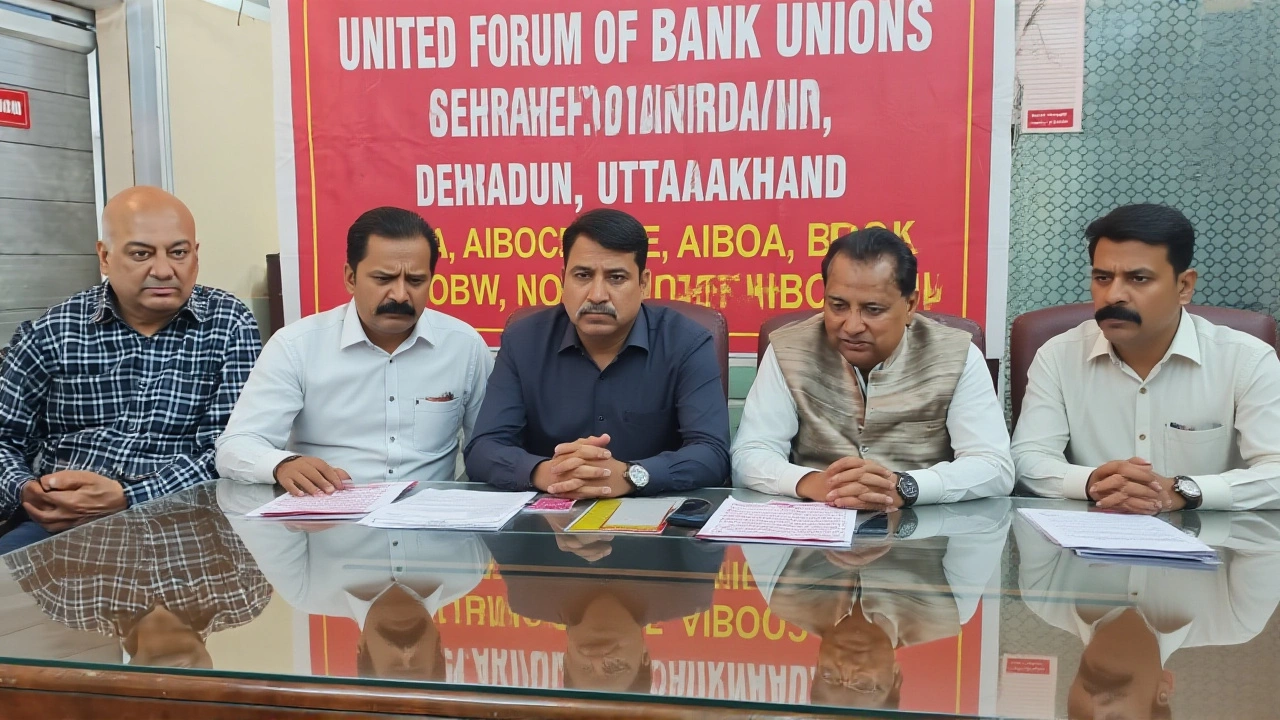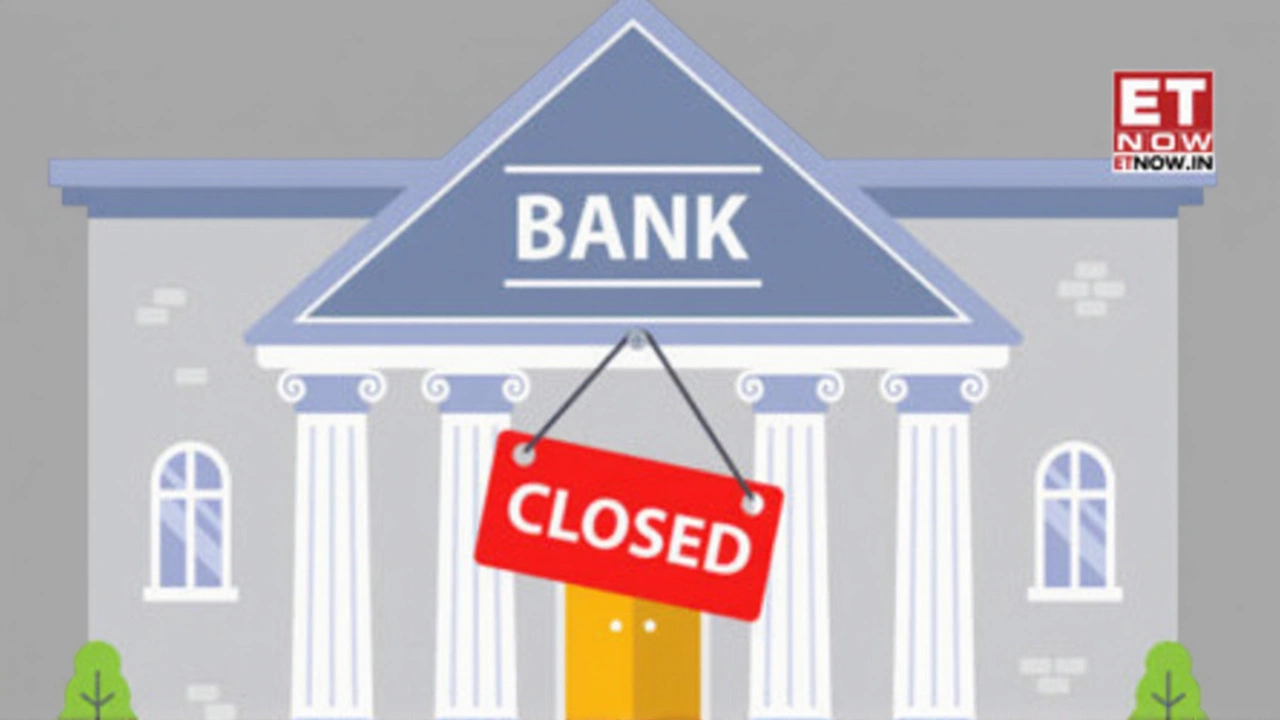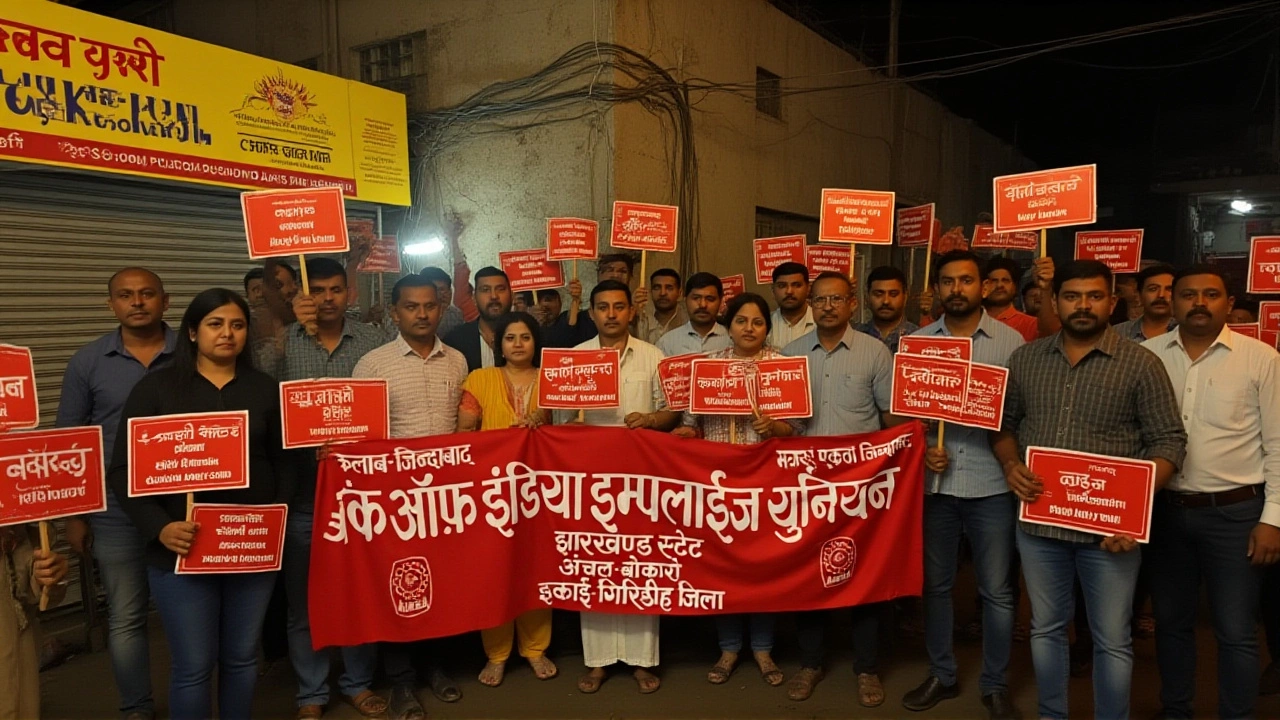When All India Bank Officers' Confederation (AIBOC) announced a nationwide strike for February 24‑25, 2025, the banking world sat up straight. The union, which represents the supervisory cadre across India’s 12 public‑sector banks, said the action will hit everything from retail deposits in Mumbai to corporate loans in Bengaluru.
The notice, issued on January 9 from the union’s headquarters in New Delhi, follows AIBOC’s 102nd Executive Committee meeting held on January 6. General Secretary Rupam Roy warned that the strike could be the first wave of a broader agitation if the government does not meet three core demands: a five‑day workweek, accelerated recruitment, and the withdrawal of recent Department of Financial Services (DFS) directives on performance reviews and the Performance Linked Incentive (PLI) scheme.
Background: A staffing crunch amid exploding business
India’s public‑sector banks have been juggling a massive surge in activity. Data compiled by former AIBOC General Secretary Thomas Franco shows staff numbers falling from 842,813 in April 2014 to 746,679 in March 2024, even as total deposits more than doubled to ₹12,088,599 crore and loan accounts jumped from 7.68 million to 123.63 million. The result? Each officer now handles roughly 2,396 accounts—six times the load of a private‑bank counterpart.
Franco’s figures also highlight a 2.65‑fold increase in business volume over the same period. "We are asking banks to do the work of two people without adding a single new recruit," he told the Centre for Financial Accountability in a recent briefing.
Strike demands and union grievances
AIBOC’s three‑point agenda is crystal‑clear:
- Recruitment drive: Immediate hiring across all cadres to bring staff strength back to 2014 levels.
- Five‑day workweek: Implementation of a reduced work schedule, mirroring private‑sector norms.
- Rollback of DFS directives: The December 15, 2024 performance review circular and the January 3, 2025 PLI modifications, which AIBOC says breach Clause 22 of the 8th Bipartite Settlement signed on June 30, 2022.
"The new performance metrics turn promotions into a lottery," Roy said at a press conference in the Press Club of India on January 10. "They ignore seniority, undermine the autonomy of bank boards under the Banking Regulation Act, and create a hostile environment for officers who are already overburdened."
Reactions from government and banking bodies
The Department of Financial Services, headed by Secretary Sanjay Malhotra, defended the directives as necessary to improve efficiency and align incentives with the sector’s rapid growth. "We are not targeting officers; we are modernising the incentive structure," Malhotra told reporters on January 12.
Meanwhile, the United Forum of Bank Unions (UFBU), an umbrella body that includes AIBOC, the All India Bank Employees Association (AIBEA) and other federations, has been coordinating protests. AIBEA General Secretary C H Venkatachalam highlighted that a massive demonstration on February 14, featuring 500 locations from Mumbai’s Azad Maidan to Kolkata’s Esplanade, set the stage for the February strike.
Economic Affairs Secretary T V Somanathan and Indian Banks' Association (IBA) Chairman Sunil Mehta have offered to meet unions after a separate UFBU strike slated for March was postponed on March 21, following assurances that recruitment and PLI issues would be discussed.

Potential impact on customers and the economy
With roughly 120,000 officer‑level employees across the 12 PSBs expected to punch out, the strike could freeze routine transactions in major urban branches. Analysts at the Confederation of Indian Industry (CII) estimate that a two‑day shutdown might delay processing of up to ₹3,000 crore in retail loan disbursements and affect cash‑withdrawal limits in high‑traffic ATMs.
Small businesses that rely on daily cash flow could feel the pinch, especially in tier‑2 cities where public banks dominate. "We’ve already seen a slowdown in loan approvals in the last week,” said Rajesh Sharma, owner of a textile mill in Surat. “If the strike extends, we might have to tap costly informal lenders.”
What’s next: Timeline and possible escalation
According to the union’s timeline, formal strike notice will be served to the Finance Ministry between January 13‑15. State‑level protest rallies are slated for the week of January 20, and a final warning will be issued on February 10.
If the government fails to meet AIBOC’s core demands by the end of February, Roy warned that “more stringent actions may follow,” hinting at a possible escalation to a broader, all‑employee strike in March.

Key Facts
- Date of strike: February 24‑25, 2025
- Primary union: All India Bank Officers' Confederation (AIBOC)
- Key demands: five‑day workweek, recruitment boost, rollback of DFS performance directives
- Number of affected officers: ~120,000 across 12 public‑sector banks
- Potential economic impact: delay of up to ₹3,000 crore in loan processing
Frequently Asked Questions
How will the strike affect retail customers?
Customers may face temporary closures of teller windows, limited ATM cash dispensation and delayed processing of cheque deposits at all 12 public‑sector banks. Most banks have promised to keep essential services like online banking and phone banking operational, but cash‑intensive transactions could see queues of up to an hour in major cities.
What led to the union's demand for a five‑day workweek?
AIBOC points to data showing that each officer now handles nearly twice the number of accounts compared to a decade ago. The union argues that a reduced workweek would help alleviate burnout, improve service quality, and bring public banks in line with private‑sector standards where a five‑day week is already the norm.
Why does AIBOC consider the DFS directives illegal?
The union says the December 15, 2024 performance review circular and the January 3, 2025 PLI changes violate Clause 22 of the 8th Bipartite Settlement, which requires any incentive structure to be mutually agreed upon by the Indian Banks' Association and bank unions. By imposing unilateral metrics, the DFS allegedly breaches that agreement and undermines the statutory autonomy granted under the Banking Regulation Act, 1949.
What role does the United Forum of Bank Unions play?
UFBU acts as an umbrella coordination body for nine major bank unions, representing over 800,000 employees across nationalized, private, foreign, and cooperative banks. It synchronises protest actions, negotiates with the Finance Ministry, and provides a unified platform for demands such as recruitment, wage parity, and policy reforms.
What are the possible next steps if the strike does not achieve its goals?
Union leaders, including AIBOC’s Rupam Roy, have hinted at broader industrial action, potentially extending the strike to all employee categories or staging a prolonged work‑to‑rule campaign. Such moves could amplify pressure on the Ministry of Finance and force a more comprehensive dialogue on structural reforms.



